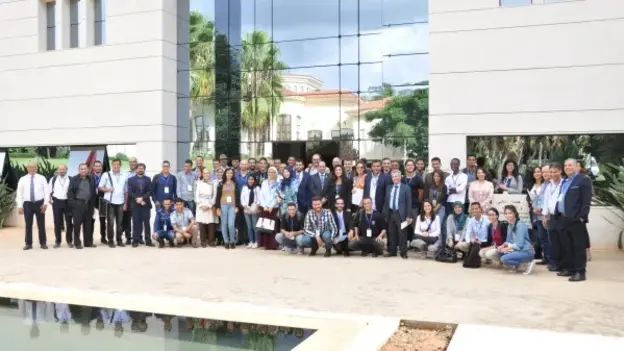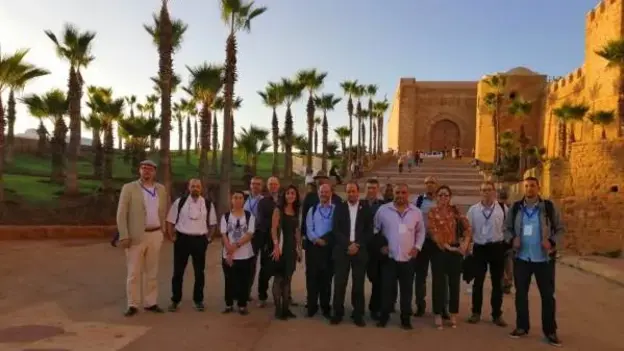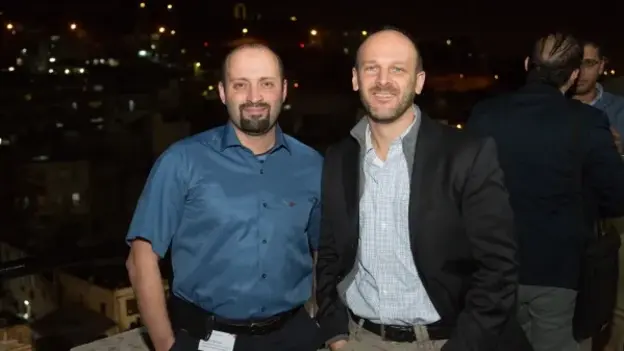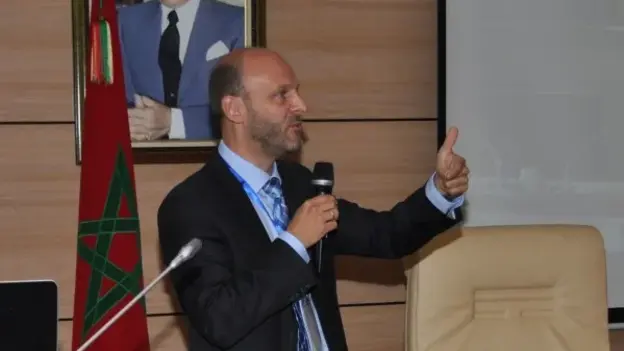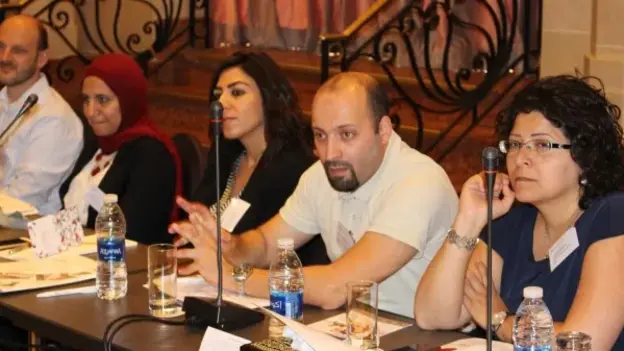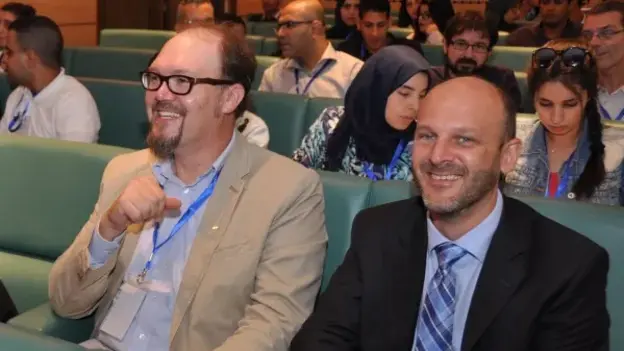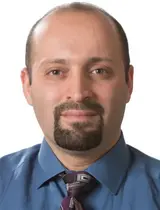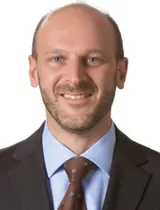Working Group Meeting
The Smart City of Tomorrow
Workshop
By 2050, the vast majority of both European and Arab states’ populations will live in urban areas. How can scholars, practitioners and urban stakeholders build better, more efficient and sustainable cities in the future? The concept of ‘smart cities’ aims to tackle urgent environmental, economic and social challenges posed by urban living through the innovative use of information and communications technology (ICT) to link and optimize energy, resource and economic flows in urban areas.
Regional Approaches Create Opportunities for Knowledge Exchange
As cities across the world attempt to improve urban systems, approaches for making cities ‘smart’ tend to vary considerably between regions. ‘Often, Arab countries take a government-driven approach and develop new cities as a whole’, says AGYA member and energy economist Prof. Dr. Marc Ringel, ‘in contrast to German concepts, which usually work in limited realms, like a city quarter or building refurbishment project’. Such differences offer a multitude of possible good practice exchanges says Ringel, ‘which is extremely enriching, as both sides can mutually learn from each other’. After months of conducting interviews and comparative research on smart city models in Germany, Algeria, Morocco, Saudi Arabia and United Arab Emirates, AGYA members Dr. Djamel Djenouri, Prof. Dr. Lalla Btissam Drissi and Marc Ringel convened a dedicated workshop on smart cities in Rabat in October 2018. They shared initial findings, received peer feedback and exchanged ideas on innovative approaches to smart cities with other AGYA members as well as a diverse range of scholars, entrepreneurs and city government stakeholders from the region like the mayor of Rabat.
Developing Solutions for Smart Cities as Interdisciplinary Endeavor
The concept of smart cities and environments ‘involves developing new technologies, physical materials and networks to modernize our cities’ explains AGYA member Djamel Djenouri. ‘But it also requires innovative ideas from the humanities and social sciences,’ he adds, ‘especially in terms of the practicality of applications and policy aspects of technology in society, including economic, management and ethical considerations’. His AGYA colleague from Germany, Marc Ringel, agrees that ‘high-tech solutions need an ethical framework in which to function’. For example, asks Ringel, ‘How should self-driving bus or taxi systems handle a small child unexpectedly crossing the street?’ Questions on how to balance between safety, mobility, efficiency and environmental impact cannot be answered by a single discipline. Moreover, ethical considerations may vary between cultures, notes Ringel, requiring constructive dialogue between local, regional and global stakeholders. For example, the trade-offs between convenience and data protection or privacy, such as in advanced home automation systems, can be seen differently depending on the cultural context. Experts from diverse countries and fields of specialisation must work together to develop common solutions for the cities of the future. For Djenouri, AGYA is ideally suited to facilitate research cooperation and knowledge exchange on smart cities precisely because it is ‘an outstanding platform for innovative projects building on synergies among experts from different academic backgrounds, countries and cultures’.
Cities Must Be Smart, but Also Sustainable
Cities currently cover about 2% of the earth’s surface, but account for a disproportionate 55% of the planet’s population, 75% of global energy consumption and 80% of harmful CO2 emissions. Roughly three quarters of the world’s population will live in a city by 2050. As more and more people move away from rural areas into cities, a successful urban planning agenda is more necessary than ever. ‘Making cities smart is not enough’, says Ringel, ‘we need to develop smart and sustainable cities to make sure that we do more than only apply fancy technology, but also aim to generate solutions to our common problems in terms of society, economy (e.g. by exporting working concepts to third countries for green growth) and ecology’. As Ringel points out, sometimes sustainable solutions can be quite ‘low-tech’, such as building bike infrastructure in Bremen (Germany) to reduce road transport emissions, or cooling in Masdar (UAE) with wind pipes – the technology for both has been around for ages. Sometimes the common solutions cities strive to implement, such as renewable and efficient energy systems, are so different, says Ringel, that ‘it underlines that there is no universal solution, but rather a multitude of answers to our common challenges that strongly depend on the framework conditions and culture. Diversity at its best!’
Ensuring Smart Solutions for Buildings
Within cities, poor management systems for energy, water and waste within and between buildings cause massive strain on the environment, with dramatic consequences for national economies and the health and wellbeing of citizens. Because buildings are one of the biggest energy consumers and wasters in the urban environment, Djenouri sees them as an ideal focal point for improving ease, efficiency and sustainability of urban systems through technology. In this vein, he and several AGYA colleagues have developed a low-cost prototype for a smart and sustainable energy management system for buildings. ‘It's similar to home assistants offered by big companies like Amazon or Apple’, he says, ‘but we have tried to keep costs down and increase the usability by simplifying menus for cell phones, using wireless communications and internet-of-things technologies, as well as natural language processing and artificial intelligence tools, including some concepts from augmented reality’. For Djenouri, it’s paramount that such solutions remain accessible and easy to use for all.
- Disciplines Involved
- Physics, Computer Science, Economics
- Cooperation Partners
- Hassan II Academy of Sciences and Technology, Morocco
- Mohammed V University-Agdal, Morocco
- Project Title
- International Workshop on Smart and Sustainable Cities: Between Reality and Aspirations
- Year
- 2018
- Funding Scheme
- Working Group Meeting
- Working Groups
- Energy, Water and Environment
- Innovation
- Countries Involved
- Morocco, Germany
- AGYA Publication
- Machine Learning for Smart Building Applications: Review and Taxonomy
- Commercial Technologies for Advanced Light Control in Smart Building Energy Management Systems: A Comparative Study
- Wireless Energy Efficient Occupancy-monitoring System for Smart Buildings
- Multiple Benefits through Smart Home Energy Management Solutions — A Simulation-Based Case Study of a Single-Family-House in Algeria and Germany
- Smart City Design Differences: Insights from Decision-Makers in Germany and the Middle East/North-Africa Region.
